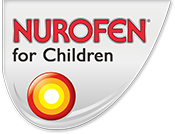Mind Over Matter

Nobody feels at their best when they have a cold or flu. Not only do children suffer more colds each year than adults; younger children may experience a fever more often and which is more severe than adults’.[1]
Children can get really miserable and cranky when they are sick, mostly because they do not understand what is happening to make them feel so. Be sure to listen carefully to their descriptions of their own symptoms, and let them rest with a good book or simply by snuggling up in their blanket and taking a nap, to help them take their mind off what they are feeling.[2]
Sick children can dwell on their illness, so try to keep them entertained
If your child says they don’t want to stay in bed, that’s OK. Let them lie on the sofa with a warm blanket or duvet. But don’t let the room get too hot, otherwise your child might feel even worse. Keep water, a doctor-approved light snack and reading material within easy reach.
Younger children
- Try distracting younger children with books, some quiet games and toys. Letting them rest in the living room means they can see you as well as watch the TV as they relax.
- Encourage your child to sleep. Read to them, or switch on a soothing audio book or some gentle music so they can relax.
Older children
- Older children can distract themselves with a book or magazine. It can also be OK for them to use their devices, such as a smartphone, tablet or a games console. Playing games or listening to music can take their mind off how they are feeling, but make sure the games are not stressful.
Remember that caring for a sick child is hard work for you, too. So look to family or friends who may be able to take over and give you a rest.
How to treat cold and flu symptoms in children
Offering your child plenty of fluids can help prevent dehydration and keep the lining of the nose and throat moist. Don’t worry if they don’t eat much for the first day or so, but try feeding them warm milk, fresh juice or soup, so that they feel better and remain hydrated.
If your child has a blocked-up nose, then a warm moist atmosphere can help – try running a hot bath and taking your child into the shower. Look for over-the-counter medicines such as ibuprofen or paracetamol to treat a fever and the aches and pains that come with colds and flu.
Nurofen for Children
When your child is in pain, the body releases substances called prostaglandins. These substances are associated with pain and inflammation, and are telling the body to do something about it.
Nurofen for Children, which contains ibuprofen as its main active ingredient, is clinically proven to reduce the production of prostaglandins. This action helps to reduce fever and bring pain relief. Nurofen is effective, fast-working and relieves fever for up to eight hours. Nurofen effects last longer than paracetamol.
Help your child deal with their fever and cold with Nurofen for Children.
[1] http://www.nhs.uk/Conditions/Cold-common/Pages/Commoncoldinchildren.aspx
[2] http://www.nhs.uk/conditions/pregnancy-and-baby/pages/looking-after-sick-child.aspx#close
